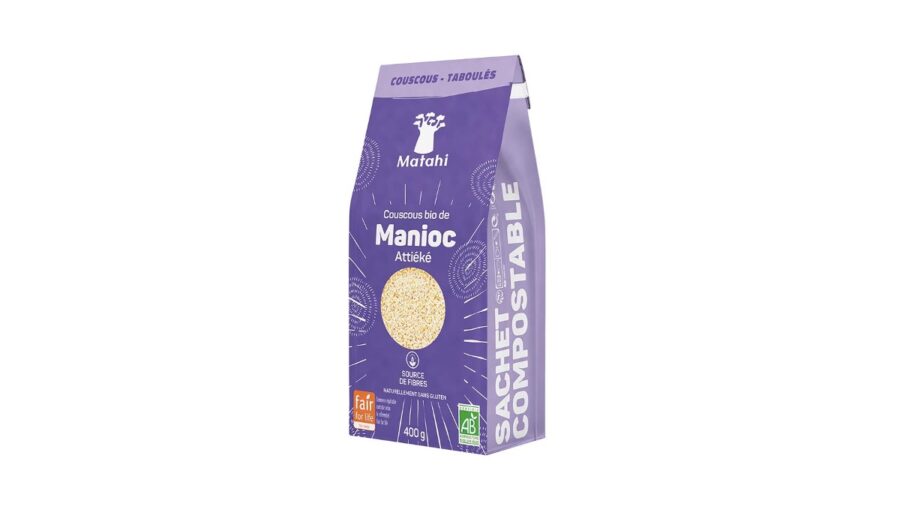A gluten-free product is available in France that is an alternative to traditional wheat couscous and is easier to prepare than classic semolina.
The flavor is slightly acidic, and this is due to the natural fermentation that takes place during the production process of cassava, also known as cassava or yuca, which is a plant of the Euphorbiacee family native to South America. Its texture is consistent, and according to Matahi it is also particularly digestible.
The company has decided to enhance the African food culture by offering the French clientele a product typical of this immense continent. Therefore, it sells typical African drinks such as baobab drinks, flour and groats, pepper purees, and fruit preparations.
Matahi is committed to developing sustainable agriculture and respecting human work throughout the production chain. The range of African flour represents an exciting alternative to durum wheat flour. Free of gluten and sources of fiber and nutrients, these preparations are available in salty or sweet versions.
In addition to cassava flour, the company also sells sweet potato, baobab fruit powder, mil-soungouf organic flour, and organic phonium flour.
The company was founded in 2009 around the baobab supply chain and was one of the first to sell these products in France.
In 2021, the Matahi supply chains were strengthened and allowed the local producers to be valued while contributing to the development of African supply chains. All ingredients are grown in some African states.
From Senegal come the euphonium, mil, hibiscus, and yellow and red peppers, while coming from Benin, the cassava, baobàb, and sweet potatoes used in the preparation of the products. From Madagascar come the pineapples, the fruits of the goyava, the mangoes, and the fruits of the passion, contributing to the economic development of the territory’s companies.
Cassava couscous takes advantage of all the properties of this plant. In fact, its tuberized roots are edible, rich in starch, and free of gluten. African populations have been consuming them since ancient times and have introduced them into their daily diet. The starch made from cassava is called tapioca and is an essential source of protein and vitamins.









